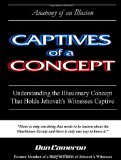Slavoj Žižek makes a very interesting defense of atheism in the editorial “Defenders of the Faith” (New York Times, 3/12/06). Certainly atheism deserves the restoration of the inherent dignity of its position. But his overall argument, at least in the context of our current realities, is flawed. It could be a readerly effect, since the article looks as though it might have been chopped up. (Boo-hiss to the editor if that is the case – Žižek deserves better.) Still, I read the piece and was surprised. So I’ll respond.
In the piece, Žižek proposes atheism as the (only?) position or standard that might offer a chance for peace.
Today, when religion is emerging as the wellspring of murderous violence around the world, assurances that Christian or Muslim or Hindu fundamentalists are only abusing and perverting the noble spiritual messages of their creeds ring increasingly hollow.
…the lesson of today’s terrorism is that if God exists, then everything, including blowing up thousands of innocent bystanders, is permitted — at least to those who claim to act directly on behalf of God, since, clearly, a direct link to God justifies the violation of any merely human constraints and considerations. In short, fundamentalists have become no different than the “godless” Stalinist Communists, to whom everything was permitted since they perceived themselves as direct instruments of their divinity, the Historical Necessity of Progress Toward Communism.
Very interesting comparison. Although he then nods in the direction of compassionate ethics as a mode of the religious (something I see in more progressive faith positions), he attributes to atheism the standing of being the only home of ethics in contemporary reality. Why should people act ethically, why should they do good, be good, strive for good? Doing so for reward (praise, salvation, paradise, heaven) or from fear of punishment (opposition, scapegoating, shunning, criminal punishments, hell) is a low moral standard – but it has often served as a starting place.
It’s true that you don’t need to believe in God to assess a situation and do what you think is the right thing. A moral deed doesn’t require God. One can do a good thing because you feel you should, or when your compassion rises, or when it increases your well-being, or even because it’s just not too inconvenient at the moment. You could do the right thing for the wrong reasons. You could do the right thing completely by accident. Or you could do the right thing because that’s the kind of person you have become – by habit, by inclination, by choice, because you like attention, or are turned on by sacrifice, because of a sense of noblesse oblige or solidarity, to gain some greater advantage, or just because your mamma told you to.
It’s the fixed idea of absolute authority, absolute truth that is more of a problem. The article even gives the idea of Communism that became a kind of “religion” as an example. One could add “manifest destiny” or “privatization” or “superior race” or any number of other ideas – when such an idea is ascendent, watch out!
So it seems to me that the alternative should properly be a kind of agnosticism, rather than atheism, which can be just another form of fanaticism (the zeal of the truly anti-religious).
I would go further than Žižek does here in this respect, and claim that religious systems of belief actually undermine ethical thinking and actions in very specific ways. Beliefs interfere by mandating rules that can and do silence narratives of experience, or cut some people off from equal consideration, or simpy reinforce existing power structures, no matter how oppressive they might be. Beliefs set up clusters of priorities that may have little relevance to the actual situation. Moreover, Zizek misses here his strongest argument, which is the tendency of some to claim authority (even the authority of the absolute – of God) as their own simply to take advantage of their apparent ability to do so. If God is in any sense within us, God is within us all.
However, I am not at all convinced that atheism is the solution. While atheists might (not always!) tend to be more tolerant of religion than the religious are of atheism, there are no guarantees that atheists are good, or will strive for the good, either. There are nasty horrible atheists, too. I don’t actually find that religious affiliation (or a lack of one) really has very much to do with what kind of a person someone is, or how they behave. Religion only creates a set of standards on what the community of believers will regard as good or bad. That creates its own effects, such as the thrill of transgression. Sometimes people will create a public persona to conform to the standard, while having a secret life that is quite different.
Žižek says that when he himself does a good deed, he does it “because if I did not, I could not look at myself in the mirror.” Fair enough, and it’s also a standard of my own. I judge myself a bit harshly (more so than I would judge others), perhaps as a holdover from having been a Jehovah’s Witness. It is difficult to judge oneself clearly and honestly, even when one really truly wishes to do so. There are also those (whether fanatical, religious, or without significant motivations based on systems of religious belief) who are not terribly concerned with honest, realistic self-evaluation or insight. It’s a completely separate topic from the one at hand.
The larger points – that it is better to do something out of love than because you have been trained to do it, and that atheism actually creates a “safe public space” for believers – really illustrates how far the religious world as a whole has fallen. Those are both religious concerns!
These weird alliances confront Europe’s Muslims with a difficult choice: the only political force that does not reduce them to second-class citizens and allows them the space to express their religious identity are the “godless” atheist liberals, while those closest to their religious social practice, their Christian mirror-image, are their greatest political enemies. The paradox is that Muslims’ only real allies are not those who first published the caricatures for shock value, but those who, in support of the ideal of freedom of expression, reprinted them.
However, allies are not always accepted (or seen as allies) if one feels disregarded or insulted – or when one of your own is whipping you into a frenzy. One has to look at how different people will prioritize the spheres of difference.
What does it really mean to respect the beliefs of another? What follows from that ideal?
If you take it seriously as a high value, then according to Žižek you are left with an aporia. Your choice then is either a patronizing tolerance (as toward a child – Santa Claus, the tooth fairy) or a relativist stance of multiple “regimes of truth” in which ultimate truth claims themselves become a kind of transgressive violence. The first choice has obvious problems. I lean toward the latter myself because I have come to believe that “Truth” is more of a goal than a possession, and that we project our truths as much – if not more so -than we discover them. Neither of these alternatives faces the actual situations he concerned with here, nor does the admittedly fascinating historical events he mentions.
We’re missing some pieces. I think there are other alternatives – alternatives that are not new, just not being activated. One is reciprocal dialogue (I agree to listen if you agree to listen, etc.), but this – and other options – depend on the will to dialogue, a will to the cessation of violence, a will to peace. Why don’t we have this, do this? That is the central question, and it is to some extent a religious question.
Critical analyses of belief structures show respect, treating even the most problematic of “believers” as adults, responsible for their beliefs. But is that really the issue? Why would a zealot feel he has to justify himself to an unbeliever anyway? Where is that going to go? In any case, I question whether the return of fanaticism and violence really has much if anything to do with beliefs. Atheism does provide a safer “space” in many respects, but it is still an absolutist “position.” How do you know that God does not exist – and what does that question really have to do with what is happening anyway? Is this what he means to argue here? Does he really mean something like liberal democracy? (If so, we could use it in America too).
I think a better strategy would be really to push for true public debates, debates that include more voices from within each tradition and viewpoint – and across traditions as well. We are talking past one another. Even in America we are subjected to outright propaganda from all sides. We hear fewer informed perspectives in the media with each passing week, in a country that used to be known for freedom of the press, freedom of speech, freedom of assembly, and public protest. Now we have biased reporting, “no-protest areas,” illegal surveillance, censorship, use of “propaganda assets,” and erroneous “terrorist” labelling of dissent/anti-war groups, even if they are pacifists!
Critiques of fundamentalist views from the position of atheism, “godless humanism” (and post-humanism) and so on are valuable. I agree that atheism should be afforded its former dignity and more (especially considering how many atheists there really are, even within religious communities). But I also think that critique and reasonable debate “from the inside” of communities is actually much more powerful – especially for adherents and members of a community. Even the simple display of events of such dialogue and debate would be a meaningful improvement. Let’s see the best minds grapple. Let’s fight with words – not fists, not bombs, not backroom deals. Such a series – broadcast all over the world – would be much better than American “Idol” (did they really think that one through?).
Religious traditions are a kind of transmission, meant to preserve the best of what has worked in the past – for stability, for group coherence, for common good, and even for human transformation and spiritual growth. Sometimes the transmission is garbled or misunderstood. Sometimes the conditions under which traditions worked for a long time no longer apply. Sometimes the rules become destructive, and sometimes they are problematic in the first place. The message means different things at different times and with different receivers (the people who hear, practice, mediate, interpret). Where the climate is cold, the vision of hell is colder. This is the time for prophets – they challenge, they teach, they realign, they reattune. Every one of us has something of the prophet within, but also something of the community that resists the prophet. Reattunement, at once longed for and feared, is a process that can never be finished. We find our way by tracing out paths, going off course, adjusting.
A loving, thinking community that argues and critiques itself from within is a stronger and more adaptive community. When communities can no longer do this – even while change is going on all around them – then I question whether the problem really has so much to do with specific beliefs. Does repression, silencing, inciting to violence, and self-righteousness (on any side) show honor to God? Yet there is an undeniable appeal for all of this among many people. What is the nature of the energy that is being tapped here? Can that speak and be addressed in some other way?
The substantial problems that we see have less to do with religious beliefs, practices or traditions than they do with other factors. Simple manipulation of the masses hasn’t gone away, nor have the old social dynamics like the ones that produce the myth of the “good old days” or the idea that diseases start elsewhere. There are economic and political factors. There are power grabs and clashes. There is greed and there is poverty. There is actual suffering and frustration. There are miscommunications and hostilies. There is powerlessness. There is love.
The ethical “accounting” for beliefs that Žižek would direct at violent believers is perhaps something like step 3 in a process that would ethically hear and respond to the multiplicity of issues involved (even supposing that a fundamentalist of any stripe would submit to being judged by anyone who did not share very deeply felt, shaping beliefs – my own modest experience suggests its unlikelihood).
Critical analyses, but also serious public discussion and dialogue across the positions, are lacking. When people are reduced to violence (there are many kinds of violence), it is not about religion – or not only about religion, although religion may be used as a tool. From almost all sides, the participants in conflicts involving religion/culture/nation/ethnicity/race/class/gender/… (almost ad infinitum) appear to lack interest in developing a consensual process to arbitrate disagreement and clash. There are significant power imbalances. Substantial discussion does not take place. Common ground is not found – nor sought.
- Shame on us all for lacking the wisdom, courage and will to use the tools we have.
- Shame on us all for treating anyone as subhuman, of treating anyone as unworthy of speaking or of being heard.
- Shame on us all for turning against one another in hatred, whether in God’s name or in the name of any other.
The twilight space for safe meeting seems to have been taken or destroyed – and it needs to be rebuilt. Realistically speaking, I don’t think that atheism is a viable ground for discussion. I wonder whether we will have to find a common enemy of humanity before we can understand our common interest in our own survival. Is that the plan, to bring us to the brink of global destruction? That’s a dangerous game.
We won’t find solutions, and can’t find solutions, until we can gain consensus and wisdom on the actual problems – and summon the collective determination to face them together.


